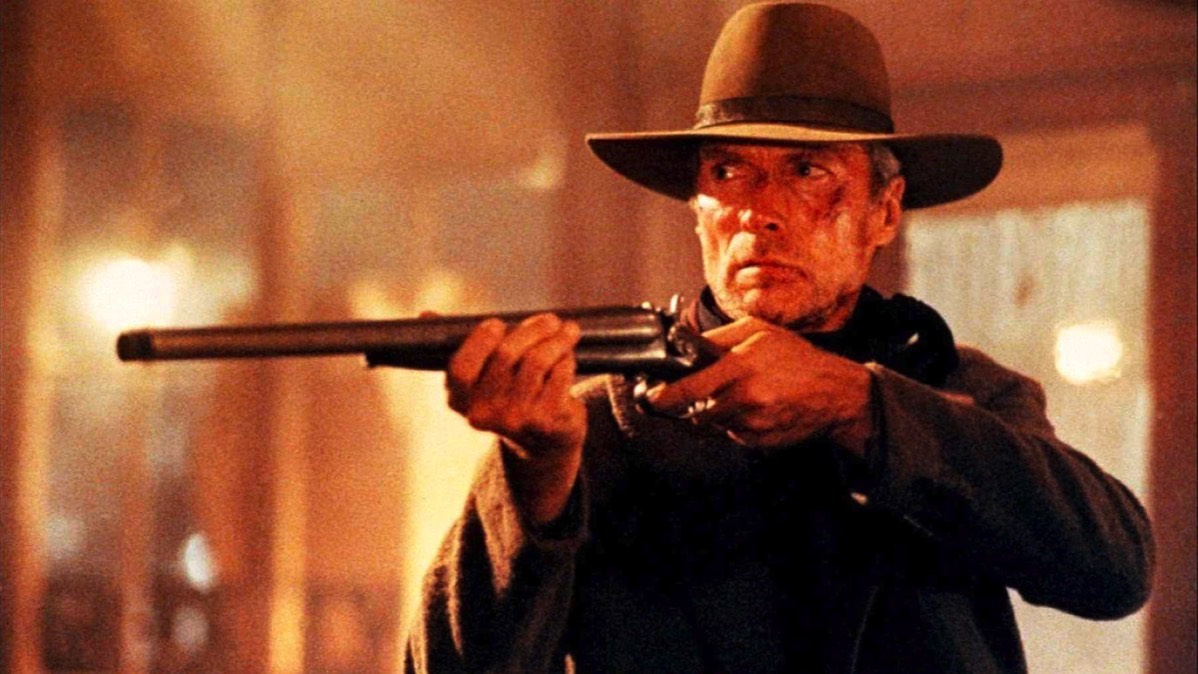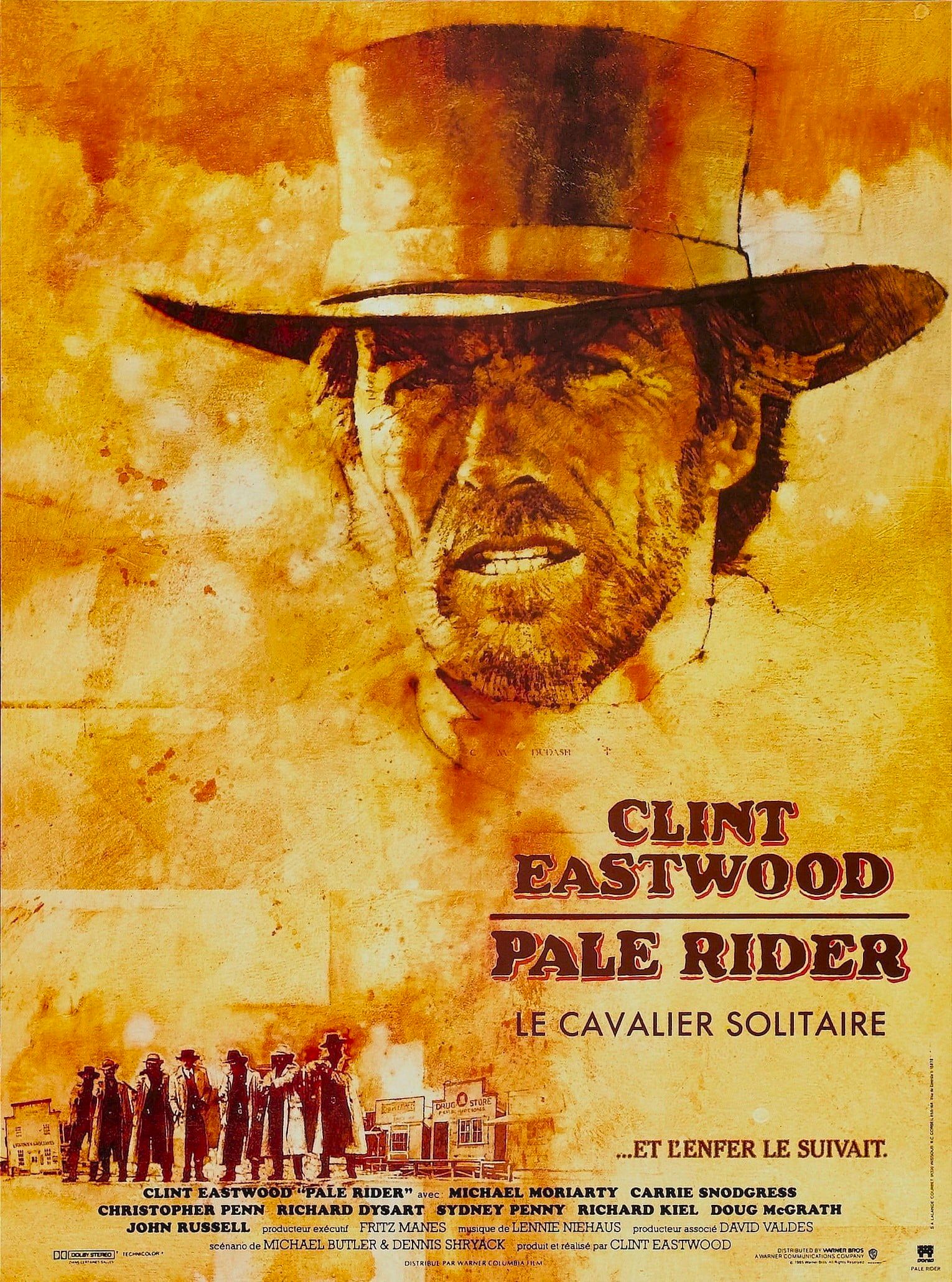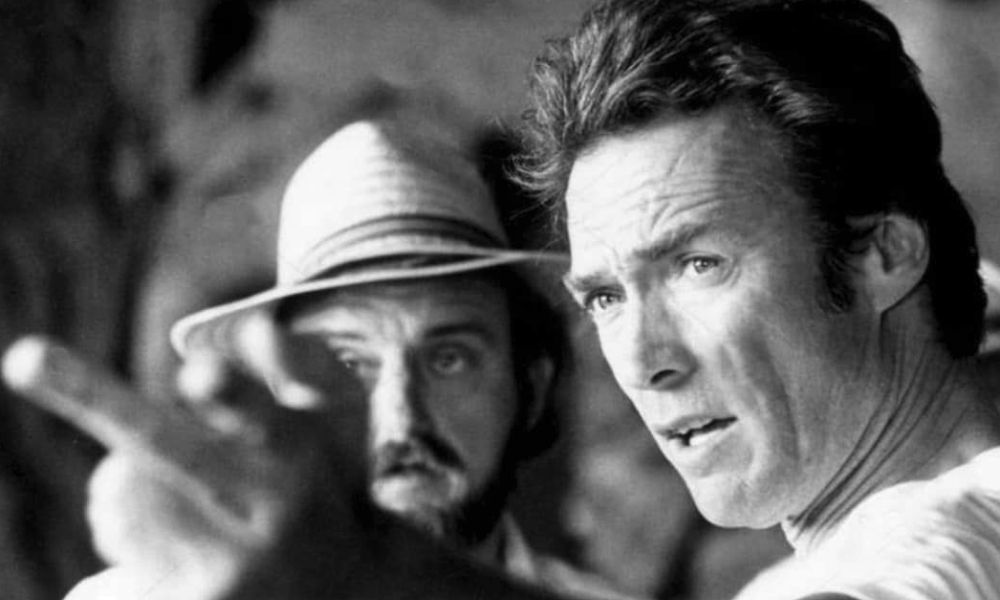"His better films as a director have a richness to them, not just stylistically - though in those respects he has learned well from Leone's concern with lighting and composition and from Siegel's way with in-frame movement, editing, and tight narration - but also a moral complexity which belies the one-dimensionality of the Eastwood image." - Andrew Tudor (The St. James Film Directors Encyclopedia, 1998)
Clint Eastwood
Director / Actor / Producer / Composer
(1930- ) Born May 31, San Francisco, California, USA
Top 250 Directors / 21st Century's Top 100 Directors
(1930- ) Born May 31, San Francisco, California, USA
Top 250 Directors / 21st Century's Top 100 Directors
Key Production Country: USA
Key Genres: Drama, Biopic, Thriller, Crime, Western, Action, Docudrama, War Drama, Crime Drama, Outlaw (Gunfighter) Film, Action Thriller, Revisionist Western
Key Collaborators: Joel Cox (Editor), Tom Stern (Cinematographer), Henry Bumstead (Production Designer), Lennie Niehaus (Composer), Jack N. Green (Cinematographer), James J. Murakami (Production Designer), Robert Lorenz (Producer), Gary Roach (Editor), Bruce Surtees (Cinematographer), Ferris Webster (Editor), Tim Moore (Producer), Robert Daley (Producer)
Key Genres: Drama, Biopic, Thriller, Crime, Western, Action, Docudrama, War Drama, Crime Drama, Outlaw (Gunfighter) Film, Action Thriller, Revisionist Western
Key Collaborators: Joel Cox (Editor), Tom Stern (Cinematographer), Henry Bumstead (Production Designer), Lennie Niehaus (Composer), Jack N. Green (Cinematographer), James J. Murakami (Production Designer), Robert Lorenz (Producer), Gary Roach (Editor), Bruce Surtees (Cinematographer), Ferris Webster (Editor), Tim Moore (Producer), Robert Daley (Producer)
"Quick to capitalize on his box-office clout and take control of his own career, Eastwood formed his Malpaso company in 1970 and forged a long, stable relationship with Warner Bros, who distributed all his films from 1975. Using a tight-knit team of trusted collaborators, keeping overheads low and shooting with legendary speed, Eastwood was a model producer. It has bought him a degree of autonomy. Whether by arrangement or innate caution, over the last three decades, he has alternated overtly commercial vehicles, especially police thrillers in the Dirty Harry mould, with more personal projects... Eastwood came into his own in his seventies - it's hard to think of any other American filmmaker who has been so productive at this age. The American Film Institute named his recent output as the "greatest cinematic work of the twenty-first century. But what's most interesting about these later movies is that they make no bones about being an old man's films. That isn't always a compliment; some of his movies can seem lazy and complacent." - Tom Charity (The Rough Guide to Film, 2007)
"The variety Eastwood's audacity brings to his work is perhaps the most attractive aspect of his art: defined by an assured sense of pace, the uncluttered, stylish camerawork of regular collaborator Bruce Surtees, and his own effectively understated performances, Eastwood's best films remain fine examples of well-crafted, intelligent popular entertainment." - Geoff Andrew (The Film Handbook, 1989)

Unforgiven (1992)
"He has used the control over his films to fashion one of the longest and most fascinating examinations of masculinity in American cinema, especially with respect to themes of individuality, violence, and more recently, ageing. Furthermore, this masculinity has been inseparable from the national culture in which it is conceived, with Eastwood's films consistently exploring his country's myths and legends through such emblematically American genres as the western, the road movie and the action film." - Andrew Syder (Contemporary North American Film Directors, 2002)
"Nobody turning out films at Eastwood’s pace can be great all the time. He likes to work fast with little rehearsal and few takes, often operating from screenplays still in the same shape they were in when the draft first landed on his desk, now an anomaly in an industry that loves rewrites, reshoots, and market-tested ideas. Sometimes the approach produces classics, sometimes it doesn’t. But it’s impossible to trace a pattern of decline. Eastwood remains capable of producing a stunner after a string of underwhelming efforts. And even the weakest Eastwood films have their compelling qualities in part because, while no one was paying attention, Eastwood learned to be a great director. Like Don Siegel, a collaborator Eastwood studied as he started to consider making his own film, Eastwood works like a craftsman. Every shot and every camera move matters, and if the work isn’t showy at every moment, Eastwood has a habit of building to an image of eerie power or disarming beauty that reveals just how much thought he’s given to what he’s doing — even if he’s thinking and making decisions faster than the average director." - Keith Phipps (Vulture, 2018)
"Eastwood the director is infinitely more interesting than Eastwood the superstar, but his films are less predictable. Quite how the man who made Play Misty for Me and The Outlaw Josey Wales could also make The Eiger Sanction and The Gauntlet is a little baffling. But one gets the impression, to echo T.S. Eliot, that 'he will do as he do do, and there's no doing anything about it!" - David Quinlan (Quinlan's Film Directors, 1999)
"As a filmmaker, Eastwood learned his lessons from the best of his previous directors, Don Siegel and Sergio Leone, who knew just when to add some stylistic or visual flourish to an otherwise straightforward scene, and also understood the effect of small nuances on the big screen. Their approaches perfectly suited Eastwood's restrained acting style, and he integrated them into his filmmaking technique with startling results, culminating in 1993 with his Best Director Oscar for Unforgiven (1992)." - Allmovie
"Has displayed a talent for cinematography and editing, as well as the ability to direct actors." - William R. Meyer (The Film Buff's Catalog, 1978)
"Approaching a film as a director and approaching it as an actor are quite different. As a director, you usually approach a film as you would like to see it in its entirety. And as an actor, you’re thinking, well, how does the character relate? Is this a character that I find appealing? Is this a character I’d like to see? They really are different. I directed films that I haven’t acted in because there was no role for me in them. When that happens, I can just stay in the directorial department. But if I’m looking at a project where there might be a role in it for me, then I start thinking about how I am going to do it." - Clint Eastwood (The Directors: Take Three, 2003)
"There's a lot of great movies that have won the Academy Award, and a lot of great movies that haven't. You just do the best you can." - Clint Eastwood
Selected Filmography
{{row.titlelong}}
GF Greatest Films ranking (★ Top 1000 ● Top 2500)
21C 21st Century ranking (☆ Top 1000)
T TSPDT R Jonathan Rosenbaum
21C 21st Century ranking (☆ Top 1000)
T TSPDT R Jonathan Rosenbaum
Clint Eastwood / Fan Club
Filipe Furtado, Javier Porta Fouz, Jeffrey M. Anderson, Rogelio Llanos, Ricardo Bedoya, Kiyoshi Kurosawa, Glenn Kenny, Ricardo Darín, Richard Brody, Edward Buscombe, Mike D'Angelo, David Stratton, Michael Wilmington.
Filipe Furtado, Javier Porta Fouz, Jeffrey M. Anderson, Rogelio Llanos, Ricardo Bedoya, Kiyoshi Kurosawa, Glenn Kenny, Ricardo Darín, Richard Brody, Edward Buscombe, Mike D'Angelo, David Stratton, Michael Wilmington.
"Fan Club"
These film critics/filmmakers have, on multiple occasions, selected this director’s work within film ballots/lists that they have submitted.
These film critics/filmmakers have, on multiple occasions, selected this director’s work within film ballots/lists that they have submitted.


